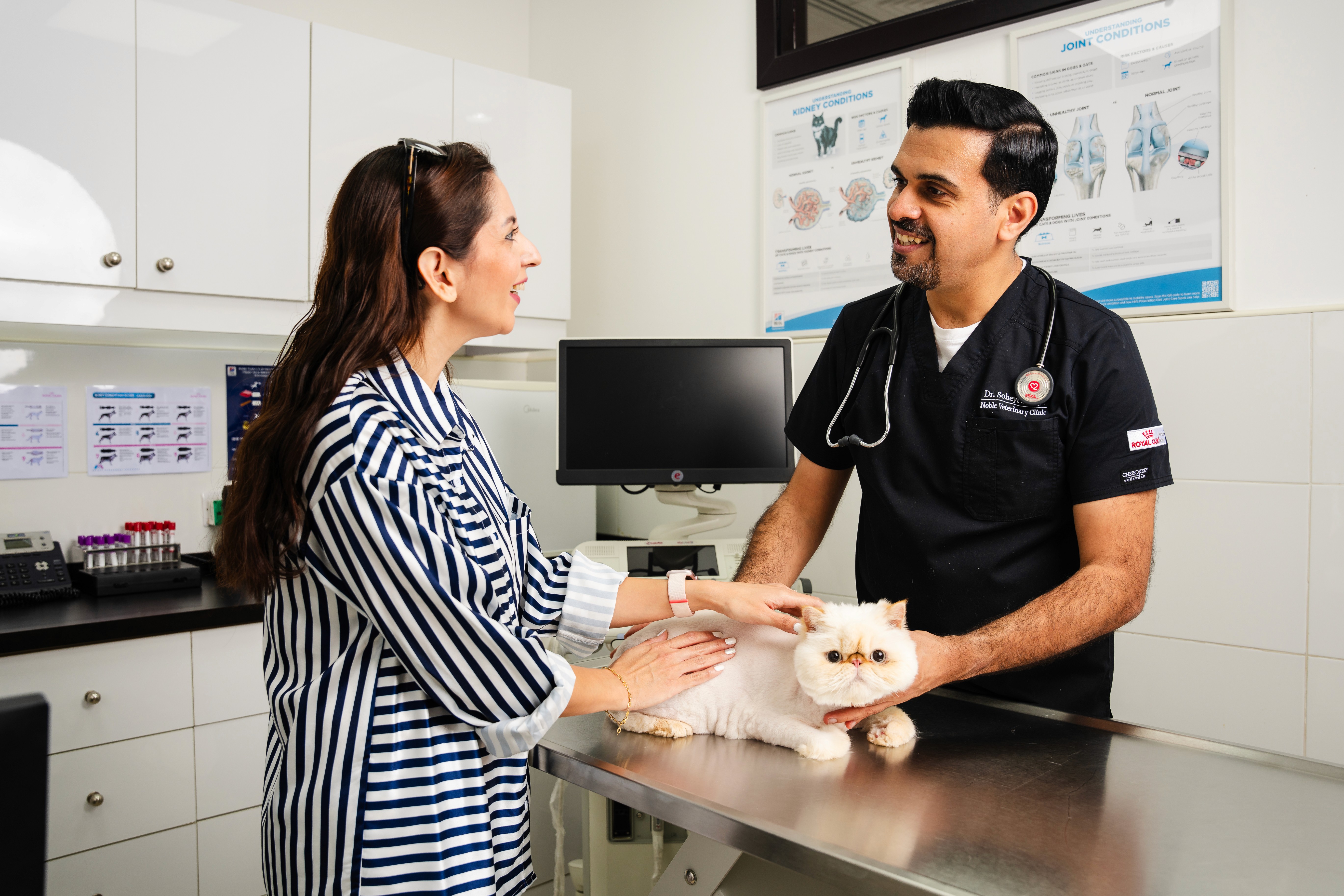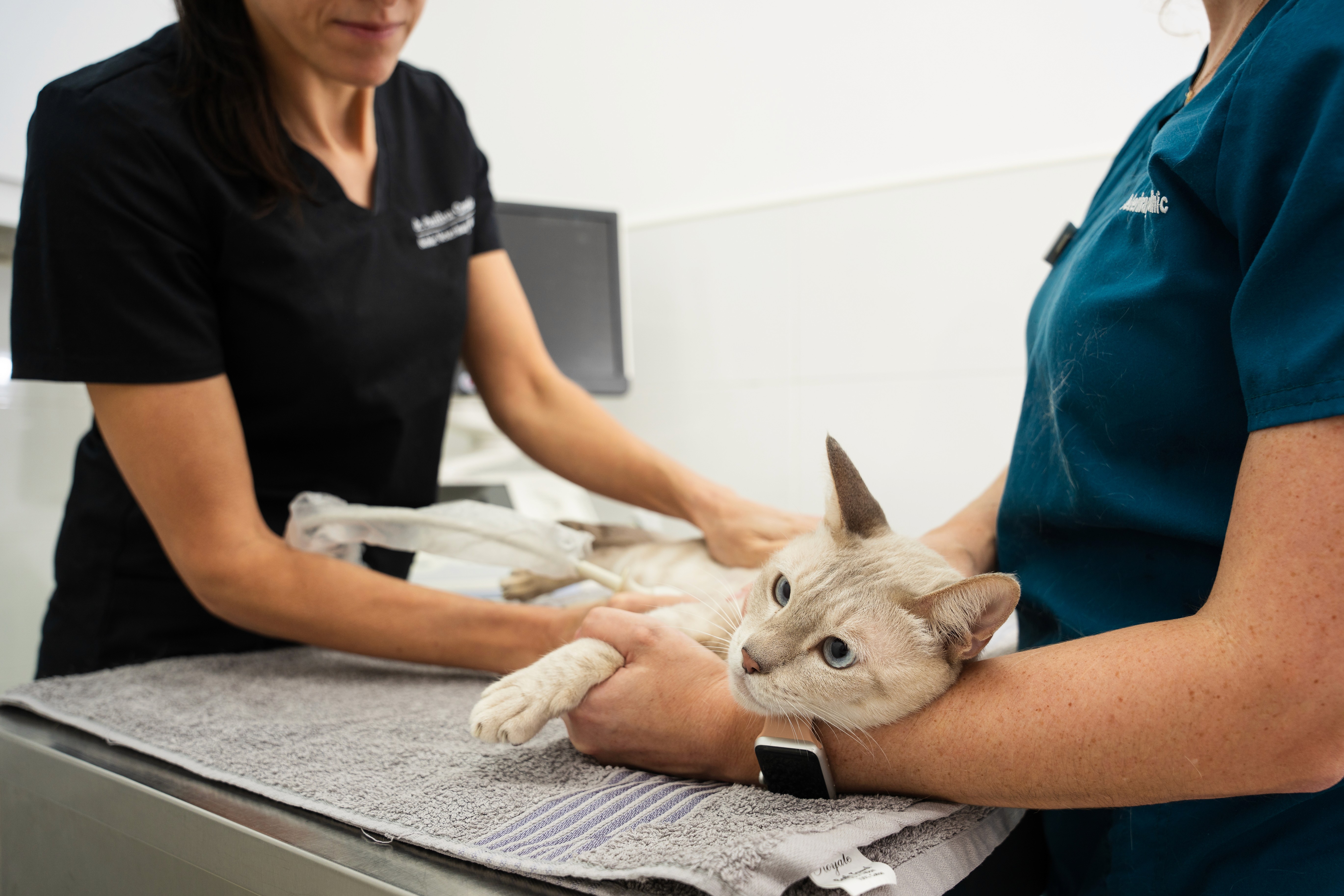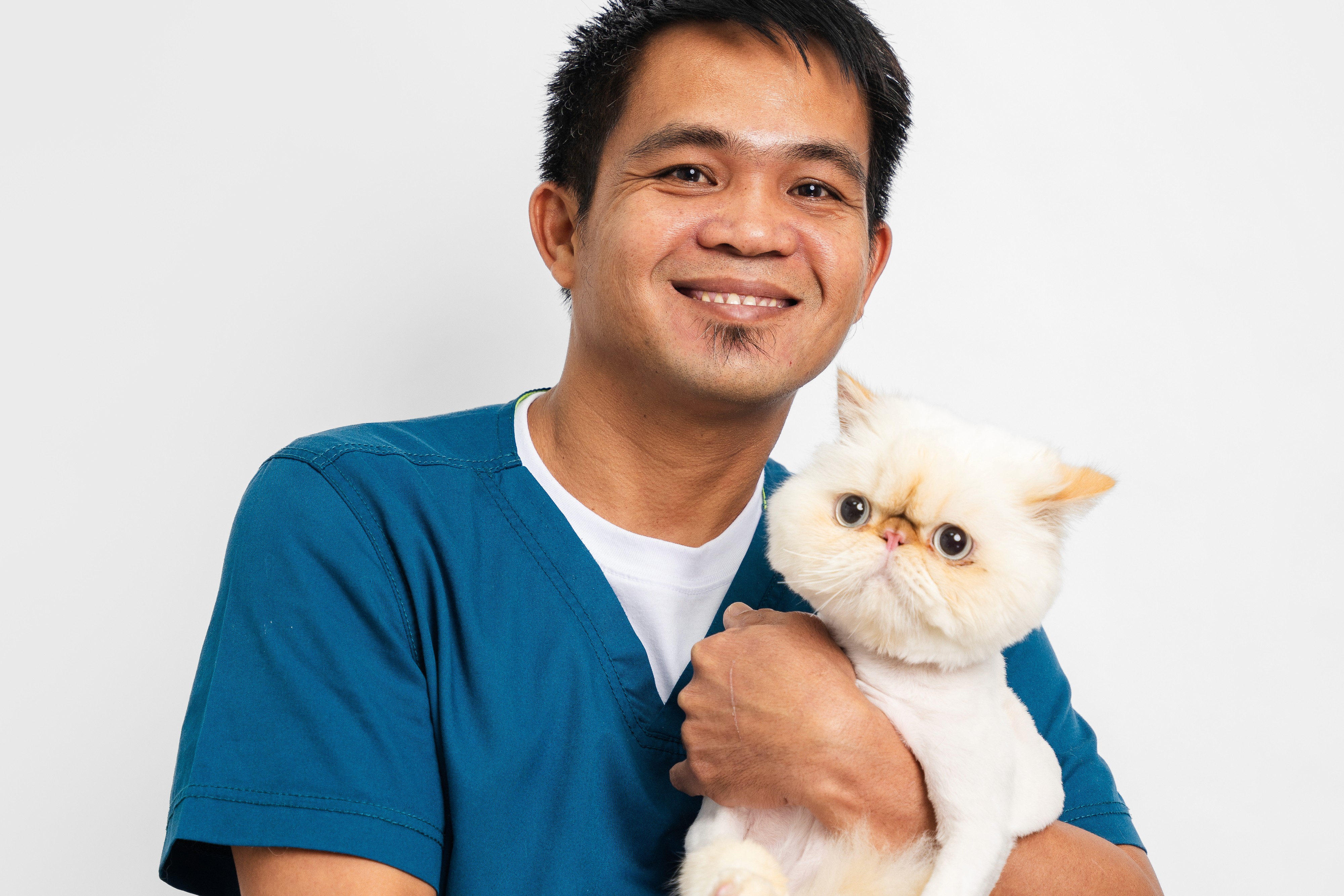15/08/2024
While it’s not that common, cats can get heart attacks. Although cats have a robust cardiovascular system designed to handle high levels of physical activity, they can still have complications in their hearts. Heart attacks are common with cats who already have heart conditions present.
Symptoms of Heart Attacks in Cats
When cats get heart attacks, certain symptoms will start to give you a couple of hints. Recognising the symptoms of heart disease or a heart attack in cats can be challenging, but we’re here to help. Here are some of the common symptoms of heart attacks in cats:
Difficulty breathing
Coughing
Lethargy and weakness
Collapse
Loss of appetite
Restlessness and discomfort
Causes of Heart Attacks in Cats

Several factors contribute to heart conditions in cats. Many of these overlap with the causes of heart disease in humans, though there are key differences. Here are some of the causes of heart attacks in cats:
Hypertrophic Cardiomyopathy
HCM is the most prevalent heart condition in cats, characterised by the thickening of the heart's walls. This thickening reduces the efficiency of the heart, making it difficult to pump blood. While the exact cause of HCM is often unknown, it is believed to be hereditary in many cases, particularly in certain breeds like Maine Coons and Ragdolls.
High Blood Pressure
High blood pressure can be the cause of heart attacks in cats. Hypertension is often secondary to other conditions, such as kidney disease or hyperthyroidism, making regular monitoring essential.
Thromboembolism
Thromboembolism in cats occurs when a blood clot forms and gets in the way of blood flow. In cats with heart disease, particularly HCM, clots can form in the heart and travel to other parts of the body, most commonly the arteries leading to the hind legs. This condition can give your cats a lot of pain and problems.
Heartworms
Heartworm disease is caused by heartworms that can damage the heart and lungs. This can lead to severe cardiovascular issues in cats. While not as common as in dogs, heartworms can cause significant damage, leading to symptoms that may mimic heart attack in some ways.
Age and Genetics
As with humans, age plays a role in the development of heart disease in cats. Older cats are more prone to heart conditions, particularly if they have a genetic predisposition. Regular veterinary check-ups can help catch these issues early.
Diet and Obesity
While cats don't typically develop cholesterol-related blockages like humans, obesity can still put a strain on their heart and overall health. Poor diets can increase the chances of heart attacks in cats, particularly in older or genetically predisposed cats.
Diagnosing Heart Issues in Cats
When cats get heart attacks, diagnosis is always the next step for effective management. However, diagnosing heart conditions in cats can be challenging due to their natural tendency to hide signs of illness. Here’s how veterinarians approach diagnosing heart problems in cats.
Physical Examination
Our vets will start with an examination of your cat’s body. We’ll start listening to your cat's heart for any abnormal sounds or rhythms. Our vets will also check for other signs of heart disease, like difficulty breathing, lethargy, or fluid accumulation.
Blood Tests
Blood tests are good indicators of your cat's overall health, including kidney function, thyroid levels, and signs of infection or inflammation. Specific markers in the blood can also indicate heart disease or related conditions.
Chest X-rays
X-rays allow the vet to examine the size and shape of the heart. Through this advanced diagnostic imaging tool, we can get a better view of your cat’s heart condition. An enlarged heart or fluid buildup can be a sign of heart disease.
Echocardiogram
An echocardiogram is one of the most definitive tools for diagnosing heart conditions in cats. This ultrasound of the heart allows the vet to see the heart's structure and function in real-time, identifying issues like thickened walls, abnormal valve function, or clots. When cats get heart attacks, this is one of the most common tools we use.
Electrocardiogram
When diagnosing your cat’s heart for any heart condition, an electrocardiogram is one of the common tools used. An ECG helps measure the electrical impulses in your cat’s heart. This can help detect irregular heartbeats that might indicate an underlying heart condition. This test is often used alongside other diagnostic tools for a comprehensive assessment.
Blood Pressure Measurement
Measuring your cat’s blood pressure is an important part of diagnostics. High blood pressure can be both the main cause and the effect of heart attacks in cats.
Other Tests
In some cases, additional tests such as MRIs and CT scans can help get clearer picture of the heart and surrounding structures when needed. These tests are usually reserved for complex cases where other diagnostic methods don’t provide enough information.
Treating Heart Issues in Cats

Treatment for heart conditions in cats depends on the severity of your cat’s condition. Here are the most common treatment options:
Medications
Medications are one of the most common ways to treat heart conditions and attacks in cats. These medications range from beta-blockers, diuretics, pain management, and oxygen therapy. Each treatment option targets specific parts of your cat’s heart attack problem.
For example, beta-blockers help slow down heart rate, helping the heart catch up and function more efficiently. Diuretics help prevent excess fluid buildup in the body, which can relieve some symptoms of heart attacks in cats.
Dietary Management
A healthy diet is essential for managing heart disease in cats. Special diets low in sodium and designed to support cardiac health are often recommended. Along with good nutrition, your cat’s weight should also be looked into, as obesity can increase the risk of heart attacks.
Regular Monitoring
Cats with heart conditions require regular vet checkups and consultations to help identify possible treatment options. This includes periodic blood tests, echocardiograms, and blood pressure measurements to make sure that the treatment plan is helping your cats with their heart attack.
Managing Underlying Conditions
If heart disease in your cat is secondary to another condition, such as hyperthyroidism or kidney disease, treating the underlying issue is critical. Effective management of these conditions can improve heart health and overall quality of life.
Emergency Care
In severe cases, such as sudden heart failure or thromboembolism, immediate veterinary intervention is required. Emergency treatments may include oxygen therapy, intravenous fluids, and medications to stabilise the cat. In some cases, surgery might be necessary to remove a blood clot.
Preventing Heart Issues in Cats
While heart attacks in cats can be prevented, there are lots of steps we can take as caretakers of our feline companions. Giving your cats a good life starts with providing the love and care they deserve.
Regular Vet Checkups
Checkups are great ways to monitor your cat’s health, especially its heart conditions. When we have a great idea of your cat’s heart condition, we can formulate better treatment and prevention techniques to help keep your cat healthy.
Healthy Diet
Giving your cat a balanced diet that is healthy for its heart is one of the best ways to prevent heart disease. Avoid high-sodium foods and opt for diets that support cardiac health. Keeping your cat in good health starts with giving the right foods.
Weight Management
One of the simplest ways to keep your cat in good health is through exercise. Keeping good physical activity can help maintain a good weight. In turn, this can keep your cat’s heart in good condition. Playtime with toys, climbing trees, and interactive games are great ways to keep your cat active.
Monitor for Symptoms
Be on the lookout for any changes in your cat’s behaviour or physical condition. Symptoms like coughing, difficulty breathing, lethargy, or sudden hind limb paralysis could indicate a heart issue and should be checked by a vet immediately. Keeping a good eye helps detect any potential problems.
Breed Care
Some cat breeds are vulnerable to heart attacks, such as Maine Coons and Ragdolls. Make sure to keep your cat in the clinic more often so we can monitor for any conditions that could endanger its life. Good research also helps you take good care of your cat’s heart at home.
Avoid Stress
Stress is one of the most versatile causes of different issues and diseases in cats. Keeping a safe and comfortable home for your cat can help it avoid any unnecessary heart conditions. This comfortable home comes with a good feeding routine, a clean litter box, and safe bedding.
Parasite Prevention
Heartworm prevention is important, especially if you live in an area where heartworms are common. Regular use of preventative medications can protect your cat from this serious condition.
Conclusion
Although it isn’t a common thing, cats can get heart attacks. Taking proactive steps to monitor and support your cat’s heart health not only extends their life but also enhances the quality of the time you spend together. Remember, when it comes to heart health, prevention and early intervention are your best allies in ensuring a happy and healthy life for your cats.
Subscribe to Our
Newsletter
Sign up for weekly pet health tips and insights from our veterinarians.
